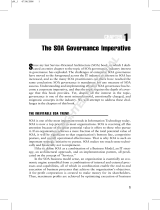Page is loading ...

PowerEdge Product Group
Direct from
Development
© 2017 Dell Inc. or its subsidiaries. All Rights Reserved. Dell, EMC and other trademarks are trademarks of Dell Inc. or its subsidiaries. Other trademarks may be trademarks of
their respective owners.
DELL EMC TESTING MATURITY MODEL – Why Testing Matters
Tech Note by:
Gene Chesser
Mark Keating
SUMMARY
Extensive, rigorous testing
means quality and customer
value.
Dell EMC uses TMMi
methodology to expand our
test process capability and
overall maturity to achieve a
high level of product quality
and delivery capability.
Dell EMC’s testing process
gains industry recognition.
The role of testing in PowerEdge quality
Testing and Validation is part of every manufacturer’s product release
process. At Dell EMC however, the detail and diligence that goes into
every product adds value and confidence that products and solutions
meet the most stringent requirements, going beyond “break fix” to
ensure reliability and lifecycle value to our customers. The testing
processes not only fix bugs: It also demonstrates true capabilities that
customers can expect to receive when the products are in their IT
infrastructures, driving their real-world applications. Dell EMC testing
also results in comparative metrics that demonstrate competitive
differentiation. These metrics and competitive claims are legally
approved, again to provide customers confidence that the test results
reflect the true capabilities of the products and solutions.
Testing Maturity Model Integration (TMMi)
The Dell EMC PGCO Enterprise Validation Team has focused on
identifying a concept, approach and methodology to expand our test
process capability and overall maturity to achieve a high level of product
quality and delivery capability. The Testing Maturity Model Integration
(TMMi) is a model of testing best practices that can help organizations
determine whether their testing processes are complete and whether
they are effective. It contains levels through which an organization
passes as its testing process evolves from one that is ad hoc and
unmanaged to one that is managed, defined, measured, and optimized.
Achieving TMMi Certification insures that every product follows a set
process to insure both functionality and the ability to perform tasks as
expected.

TMMi background and history
The TMMi framework has been developed by the TMMi Foundation as a guideline and reference framework for
test process improvement, and is positioned as a complementary model to the Capability Maturity Model
Integration Version 1.2 [CMMI] addressing those issues important to test managers, test engineers, and
software quality professionals. The Testing Maturity Model Integration (TMMi) seeks to help organizations to
improve the complete testing process through a holistic approach to quality assurance. The TMMi
methodology approaches improving testing by providing a standard reference model so that strengths and best
practices can be identified and weaknesses in testing effectiveness and efficiency can be improved.
Dell EMC receives industry recognition
As described by Mark Keating, Senior Principle Engineer, PGCO Validation Team. “The Dell EMC PGCO
Validation team has been actively engaged in enhancing our process capabilities and is pleased to achieve the
fully certified TMMi level 3 Certification. Dell EMC is the first major technology company in North America to
achieve this level.”
TMMi Maturity Levels and
Process Areas
Testing
Critical Success Factors
Level 2 - Managed
- Test Policy and Strategy
- Test Planning
- Test Monitoring and Control
- Test Design and execution
- Test Environment
Level 3 – Defined
- Test Organization
- Test Training Programs
- Test Lifecycle and integration
- Non Functional Testing
- Peer Review fina
The process consisting of all
lifecycle activities, both static
and dynamic, concerned with
planning, preparation and
evaluation of software and
hardware products to determine
that they satisfy specified
requirements, to demonstrate
that they are fit for purpose and
to detect defects.
[International Software
Testing Qualifications
Board]
Sponsor
- Continued commitment and
focus from Project sponsor and
Executive management
- Attention and support of all
stakeholders (including
Business, Development,
Testing)
Participation
- Active participation of
practitioners throughout the
engagement
Feedback
- On-Going support and feedback
from all members of the
organization
Communication
- Organizational Change
Management
- Appropriate planning and
communication
For more information:
https://en.wikipedia.org/wiki/Capability_Maturity_Model_Integration
http://www.tmmi.org/pdf/TMMi.Framework.pdf
© 2017 Dell Inc. or its subsidiaries. All Rights Reserved. Dell, EMC and other trademarks are trademarks of Dell Inc. or its subsidiaries
/
